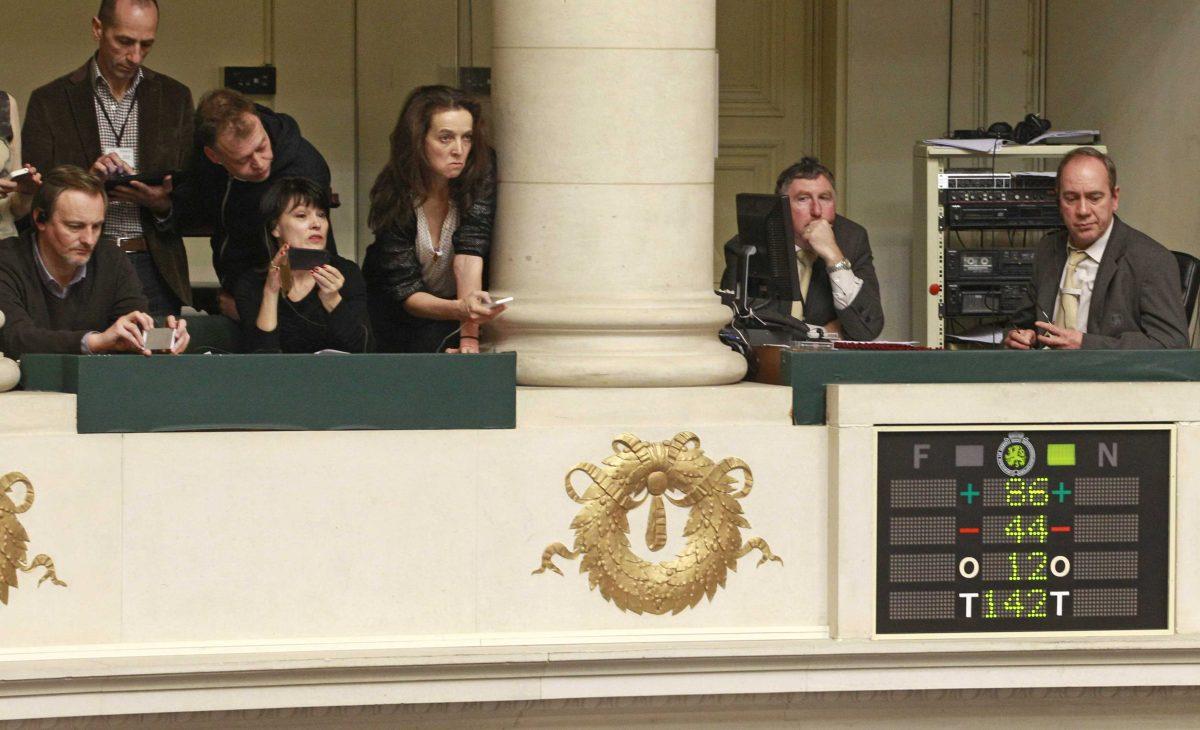It seems ridiculous to claim that one has a right to life, then to turn around and deem someone a criminal for trying to end it.
Many European countries avoid this contradiction, but the United States has yet to correct its mistakes.
Last week, the Belgian Federal Parliament passed legislation extending the right of euthanasia to minors younger than the age of 18. Kids can now voluntarily choose to kick the bucket if and only if they are terminally ill or are suffering from unbearable pain.
However, the children must pass a psychological examination and their parents must provide consent, so don’t expect a bunch of 5-year-olds to commit suicide anytime soon.
The U.S. has yet to legalize euthanasia in any form, and assisted suicide is legal in just five states. You’d think in the land of the free, one would have the right to end their life when dire circumstances arose.
Opposition to euthanasia is almost as American as apple pie, and it’s not surprising considering our religious culture. Opponents claim too much corruption exists in the medical field. They argue that health care providers will suggest life-ending drugs to patients to increase profits, and doctors or family members will pressure patients into ending their lives for personal gain.
Minimizing corruption is something to always strive toward, but in every field, at every age, and in every country, the unfortunate nature of humanity is present.
Criminalizing a moral right, such as euthanasia, on the basis that corruption may result is a weak argument.
If eliminating corruption is the major duty of government, then we might as well outlaw politics in Louisiana.
And those who desire to decrease corruption should understand that legalizing euthanasia is a giant leap forward. Just like the prohibition of any drug, criminalizing a non-violent act leads to black markets and increased hostility between civilians and law enforcement.
For some reason, seeking professional assistance or medical guidance when contemplating death warrants prison time. Once again, the law is trying to protect us from ourselves and is only causing more harm than good.
Why is it wrong to try and end your life with the help of a doctor but legal to lock yourself in a bathroom and overdose on painkillers?
America should take Belgium’s euthanasia bill as a lesson in liberty and apply it here at home. If government was established to serve as protector of both the individual and bodily integrity, it must also respect one’s right to end his or her life.
Forcing a terminally ill patient to stay alive is twisted, but it’s even more repulsive to force doctors and hospitals to pay and use resources to keep that person alive.
Not only is this ethically perverted, it’s also economically disastrous.
The U.S. spends more money on health care than any other nation in the world, some of which goes to provide medication and lodging to patients who are in such detrimental health that they wish to end their lives. Decriminalizing euthanasia could potentially save thousands of dollars per person, which would add up quickly when accounting for the many terminally ill and suffering patients.
Economic benefits are not justification for legalizing euthanasia; they are merely positive consequences.
There’s no question why the U.S. continues to drop in the World Freedom Index ranking. As much as it hurts to admit, European nations have passed us in terms of individual liberty, and they are slowly increasing their lead.
Our government will remain the laughingstock of the western world until it replaces its contradictory legal code and begins to return fundamental freedoms to its people.
Andrew Stolzle is a 21-year-old mechanical engineering junior from Baton Rouge.
Opinion: Making the case for federally legal euthanasia
February 17, 2014
Journalists look at the electronic voting board as Belgian politicians vote in favour of the bill on child euthanasia at the Belgian federal parliament in Brussels, Thursday Feb. 13, 2014. Belgium, one of the very few countries where euthanasia is legal, takes the unprecedented step of abolishing age restrictions on who can ask to be put to death, extending the right to children. The legislation appears to have wide support in the largely liberal country. But it has also aroused intense opposition from foes, including a list of pediatricians, and everyday people who have staged street protests, fearing that vulnerable children will be talked into making a final, irreversible choice. (AP Photo/Yves Logghe)





